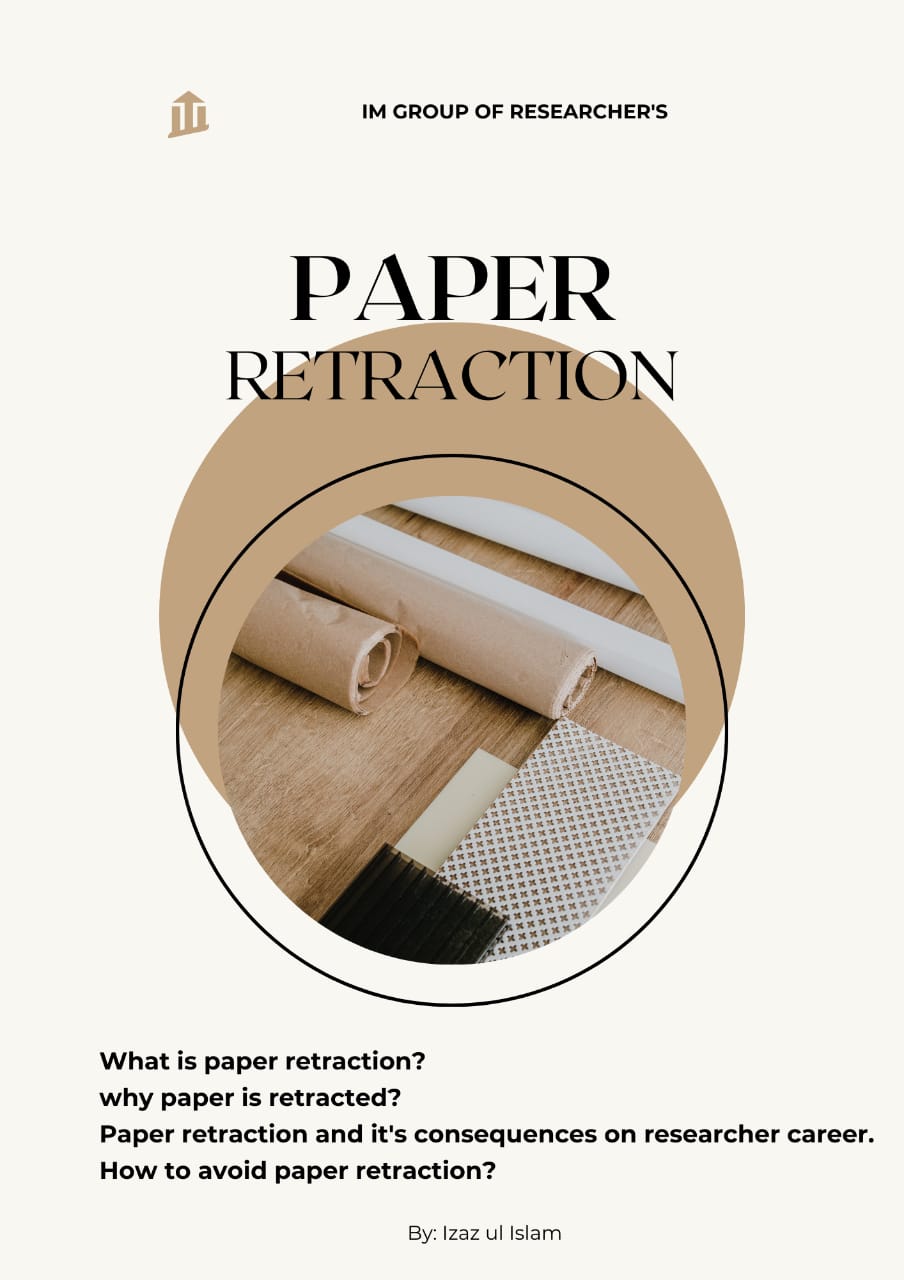Paper Retraction
Paper retraction refers to the formal removal or withdrawal of a published research article from a scientific journal. This action is taken when significant issues or errors are identified in the published work, undermining its validity, reliability, or ethical standards. Retraction is a mechanism to correct the scientific record and inform the academic community about the problems associated with a particular study. Reasons for retraction may include misconduct, errors, or other serious issues that compromise the integrity and credibility of the research.
Author
Izaz Ul Islam

ResearchGate: Click here to see Izaz’s profile
Research article retraction occurs when a published paper is officially withdrawn by the journal or the authors due to identified issues with the research. Reasons for retraction can vary, but common causes include:
- Misconduct: In cases of plagiarism, data fabrication, or other ethical violations.
- Errors or Inaccuracies: Substantial mistakes in data analysis, experimental design, or reporting that compromise the study’s validity.
- Duplicate Publication: Submitting the same work to multiple journals without proper disclosure.
The impact of a paper retraction on researchers or authors can be significant. It can damage their reputation, credibility, and funding prospects. The scientific community may view retractions as a sign of untrustworthiness, affecting the author’s career and the overall trust in their body of work.
To avoid paper retraction, researchers should:
- Maintain Ethical Standards: Adhere to ethical guidelines, ensuring honesty and integrity in research.
- Thorough Review: Conduct rigorous peer review and self-review to identify and rectify errors before submission.
- Data Transparency: Provide detailed and transparent information about research methods and results.
- Avoid Plagiarism: Give proper credit for previous work and avoid any form of plagiarism.
- Peer Collaboration: Engage in open and collaborative discussions with peers to validate findings.
In essence, a commitment to ethical conduct, rigorous research practices, and transparent reporting can help researchers avoid retractions and contribute to the credibility and reliability of scientific literature.
Also read: Difference Between Research Paper & Review Paper
Follow Us on

